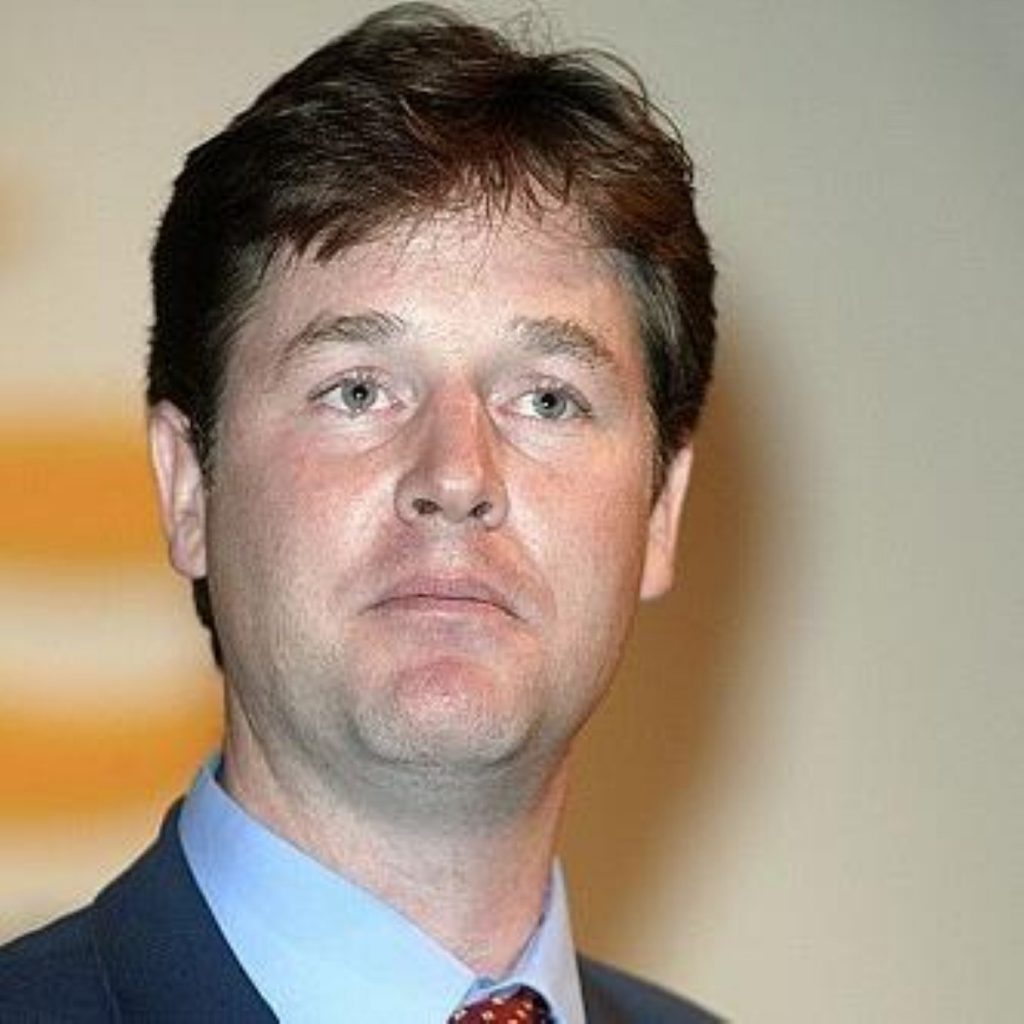Clegg: ‘Liberal by choice, conviction and temperament’
Nick Clegg is the second candidate to launch himself from the starting blocks in the race to become leader of the Liberal Democrats.
Speaking at a press conference in his Sheffield constituency, the home affairs spokesman announced his intention to run by positioning himself as the candidate to take the party in a bold new direction.
Mr Clegg said: “If the Liberal Democrats are to change the tired old pattern [of politics] we are going to have to be bold.
“We will have to move outside our comfort zone and take greater risks than we’ve ever done before.


“The stakes are high. Three-party politics is in the balance, and if we’re honest, over the last two years or so, the Liberal Democrats have been looking inwards too much.
“We cannot test the patience of the British people any longer. We must now make a long term commitment to British liberalism.”
He claimed there were thousands voters who sympathized and shared liberal ideals, but who the party had not yet managed to reach.
He spoke of wanting to “broaden the appeal” and fight two-party, tired patterns of Westminster politics.
At a fringe event at the Lib Dem conference in September, Mr Clegg caused a stir but admitting he would “probably” run for leader if Ming Campbell were to resign.
“If you are asking me would I stand against Ming” the home affairs spokesman said at the time, “the answer is no.”
But, when pushed, he admitted: “If there was a vacancy in the future then I probably would”.
He spoke out firmly against the voices in the media, doubtful of Ming Campbell’s leadership abilities then, labeling it as “barely disguised ageism”.
And today, he reiterated these sentiments by paying tribute to the leader who resigned on Monday evening.
When viewed beside his rival Chris Huhne, Mr Clegg is generally perceived to be the more charismatic of the two contenders, although they bare startling resemblances in terms of political ideology.
Both were educated at Westminster school, and both are Oxbridge graduates.
Mr Clegg went on to gain a masters at the University of Minnesota after winning a scholarship, then spent some time working for a left-wing magazine in New York and finally achieved a second masters at the College D’Europe in Brussels.
Adding to this cultural milieu, Mr Clegg is half Russian and half Dutch and fluent in five different languages.
Like Chris Huhne, he also has a background in journalism, with the Financial Times and the Guardian featuring on both their CVs.
Mr Clegg was elected to the Lib Dems in 1998 as European candidate for the East Midlands.
He was elected as MP for Sheffield Hallam in 2005, meaning he also has exactly the same amount of ministerial experience as his rival.
Under Charles Kennedy’s leadership, he acted as spokesman for Europe, and was pegged as a possible successor when the former leader resigned in 2006.
Mr Clegg declined the calls to stand, however, and declared his support for Ming Campbell.
He was rewarded for his loyalty in 2006, when he was promoted to the role of home affairs spokesman.
He is firmly against ID cards and state intrusion into individual freedoms, and has campaigned against DNA retention and terror legislation implemented under Labour.
These principles were echoed in Chris Huhne’s declaration statement on Tuesday, and the two also strike accord on the need for prison reform.
The key concern for these front-runners, will be how to differentiate their policies and backgrounds from each other before ballots are cast in November.












